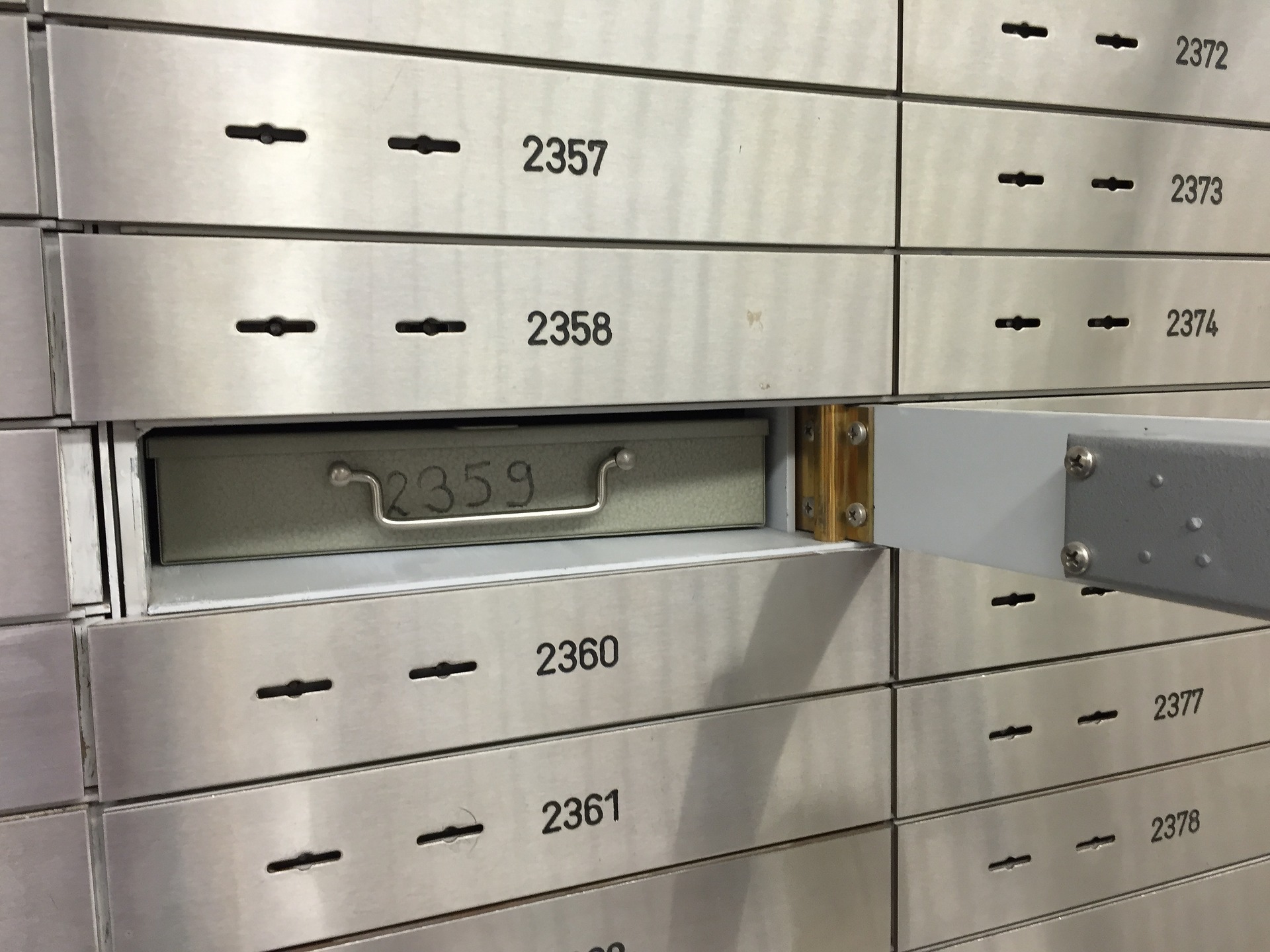A home safe is a good place to store replaceable items that you may need immediate access to. But home safes are not as secure as safe deposit boxes.
For example, a burglar could easily break into your home and open the safe or simply take the safe. It’s far harder to get inside your safe deposit box at your bank.
Anything you might need quickly or when the bank is closed should not be kept in a safe deposit box.
These include:
- A power of attorney
- Living will or final will documentation
- Safe-deposit box keys. If you store valuables in a bank safe deposit box, you’ll want to make sure you keep the keys to it in a safe place, too.
If something happens to you it could make getting into your safe deposit box at the bank complicated. Your family will need these documents to either retrieve property or make decisions to help you.
What to keep at in a safe deposit box at the bank
A good rule of thumb is to keep items that are important, hard to replace and are not needed often.
These include:
- Birth certificates
- Adoption records
- Marriage certificate
- Death Certificate
- Divorce Paperwork
You’re unlikely to need any of these documents for everyday use, but if you do need them, it’s quite a lot of work to get a hold of a copy.
You will need to provide proof of your identity, pay a fee, and wait days or weeks to receive your documents. It’s much less trouble to store them away safely.
If you or your children were adopted, especially from another country, you should consider keeping all paperwork related to that process in your safe deposit box as well, since getting copies from foreign governments could be next to impossible.
Where to keep property records
Like the deed to your home, your car title is a document that’s important but rarely needed and is a big hassle to replace if it’s lost.
That makes a safe deposit box an ideal place for it. When it comes time to sell the car, you’ll know exactly where to find the title: safe and sound in your box at the bank.
When you buy a house, too, you have to handle a ton of documents at the closing. Some of these could be important to hold onto and belong in a bank box, such as the:
- Deed: You’ll need the deed to the property when you want to sell the house. You might also need it to prove you’re the owner of the record.
- Settlement documents: The closing statement and other settlement documents show how much you paid for the property. You’ll need this information for tax purposes, particularly when you sell the house.
- Property survey: This document shows the boundaries of your property. It can come in handy if you ever get into a dispute with a neighbor over property lines.
- Title survey: The title survey and title insurance will be important if anyone disputes your claim to the property.


